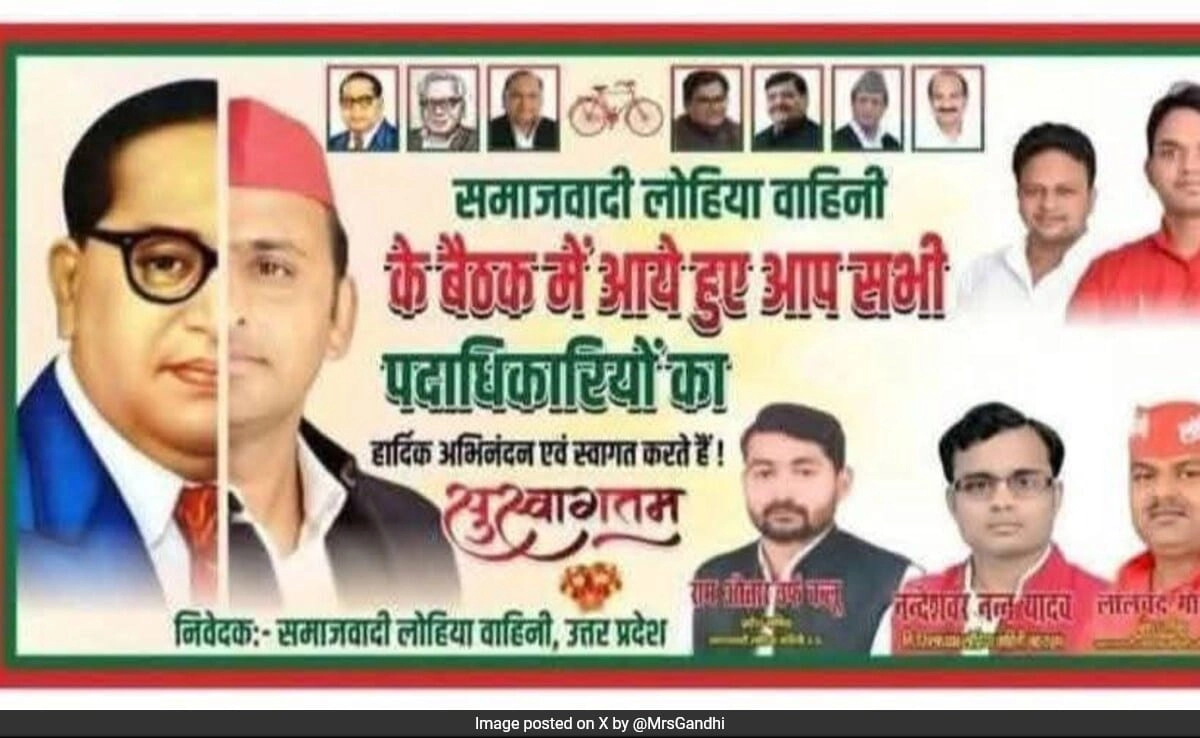The ongoing political landscape in India has witnessed a significant escalation in tensions, particularly evident in the recent “Poster Wars.” In the latest round, a provocative edit featuring Akhilesh Yadav, the leader of the Samajwadi Party, and Dr. B.R. Ambedkar has drawn sharp criticism from the Bharatiya Janata Party (BJP). The edited poster, which aligns Yadav with the revered figure of Ambedkar, who was instrumental in drafting the Indian Constitution and championed the cause of social justice, has sparked outrage among BJP leaders. This move is not merely a clash of political ideologies but also highlights the deep-seated historical narratives that continue to shape contemporary Indian politics.
The BJP’s fury stems from their perception that the use of Ambedkar’s image by Yadav is an attempt to appropriate his legacy for political gain. This controversy is emblematic of a broader struggle over the symbols and figures that represent various political ideologies in India. While Ambedkar is celebrated by many for his advocacy of equality and social reform, the BJP has positioned itself as the custodian of national pride and cultural heritage, often critiquing those who seek to reinterpret historical figures for modern political purposes. In this context, the poster serves not only as a campaign tool but also as a battleground for competing narratives about India’s past and its implications for the present.
The incident has sparked debates on social media and in political circles about the ethical implications of using historical figures for electoral purposes. Supporters of Yadav argue that invoking Ambedkar is a legitimate means of honoring his contributions to society, particularly for marginalized communities. Conversely, BJP leaders assert that such actions dilute Ambedkar’s legacy and misrepresent his ideals for partisan advantage. This clash of interpretations underscores the complexity of India’s political discourse, where historical figures are often co-opted to serve immediate political objectives, leading to a fierce tug-of-war over their legacies.
As the Poster Wars continue to unfold, it is evident that the stakes are high for all parties involved. Yadav’s strategic move to associate himself with Ambedkar could galvanize support among his base, particularly among those who identify with Ambedkar’s vision of social justice. On the other hand, the BJP’s vehement opposition reflects their commitment to maintaining control over the narrative surrounding national icons. This episode not only illustrates the contentious nature of Indian politics but also raises important questions about the role of historical figures in shaping contemporary political identities and the ongoing struggle for social equality in India. The outcome of this battle could have lasting implications for the future political landscape of the country.




